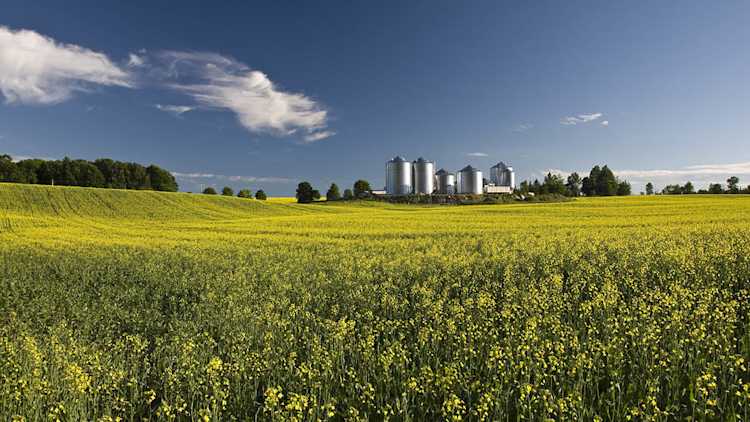Biofuel expansion promising for Canadian producers and consumers: FCC analysis

As Canadians fill up their fuel tanks this summer, they are also powering a growing biofuel sector.
According to Farm Credit Canada (FCC), Canada’s oilseed producers are set to benefit from the current biofuel boom across North America.
Ethanol vs. biodiesel and renewable diesel
Ethanol is the most produced biofuel globally and in Canada with plants producing nearly 150 million litres per month. While no new ethanol plants have been built recently, existing ones have boosted productivity by extracting more ethanol from each tonne of grain. Ethanol also enhances gasoline octane, making it a valuable fuel additive.
“Ethanol production in Canada is steady, with a focus on efficiency, ensuring a reliable supply,” said Justin Shepherd, senior economist at FCC.
Biodiesel, made primarily from vegetable oils, has limitations in cold weather, leading to seasonal fluctuations in blending. Renewable diesel, however, can be used year-round due to its chemical similarity to traditional diesel, offering higher carbon credit prices and easier integration.
“Higher ethanol blends in gasoline are a positive development for both the environment and the economy,” Shepherd noted. “Renewable diesel’s versatility makes it a game-changer for consistent biofuel blending.”
Increasing biofuel use
Canadian fuel blenders are increasing ethanol content in gasoline, with ethanol now accounting for 10 per cent of finished gasoline. Future increases will comply with provincial and federal mandates, though the rise in electric vehicles may affect long-term demand.
Biodiesel blending peaks in summer, reaching nearly four per cent of the diesel blend, while renewable diesel use is expected to grow consistently due to new production capacity.
Vegetable oils as primary inputs
Increased renewable diesel production relies mainly on vegetable oils, up to 51 per cent in early 2024. Canadian canola oil exports to the U.S. are on track for a record year, driven by U.S. biofuel policies.
“Canadian oilseed producers are positioned to capitalize on the growing demand for biofuels in North America,” Shepherd added. “It demonstrates the potential for biofuels to contribute to cleaner energy solutions.”
Canada’s oilseed producers stand to gain from the North American biofuel boom. Rising blend rates, increased oilseed crush capacity, and government support enhance the sector's prospects.
FCC is proud to be 100 per cent invested in Canadian agriculture and food. The organization’s employees are committed to the long-standing success of those who produce and process Canadian food. FCC provides flexible financing and capital solutions, while creating value through data, knowledge, relationships and expertise. FCC offers a complement of financial and non-financial products and services designed to support the complex and evolving needs of the industry. As a commercial Crown corporation, FCC is a stable partner that reinvests profits back into the industry and communities it serves. For more information, visit fcc.ca.
-30-
For more information or interviews, please contact:
Jill McAlister
Corporate Communication
Farm Credit Canada
306-540-4840
jill.mcalister@fcc.ca